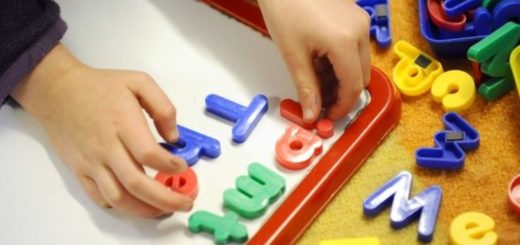‘Everyone’s Invited’ – The Aftermath. An editorial comment.
“F… you”, ” I will make you die” from the mouth of a 4/5 year old boy to an adult who asks him to stop what he is doing.
“You are a c…” to a girl who excels in a sport traditionally meant for boys, from the mouth of a 9/10 year old boy”
“You are the colour of poo” from the mouth of a 6/7 year old boy to another boy.
” F..ing Paki”, from the mouth of a 7/8 year old boy to another boy.
” You wanna be my b….?” from the mouth of 10/11 year old boy to a girl.
” You can’t be our friend today. Your hair isn’t blonde enough”, from the mouth of a 4/5 year old girl to another girl.
Just a handful of true anecdotes that have occurred over the last few years in a number of different local primary and prep schools. Most went unreported and the few that were, unfortunately, were not dealt with appropriately by the institution concerned. In one case, the victim who stood up for himself by pushing the aggressor was suspended while the aggressor whose grandfather was a large donor, went unpunished. In another, a teacher admonished the victim for telling their parents instead of coming to her even though the victim has complained several times previously.
Add to that, the so called “rites of passage” pre-teens and teenagers are often subjected to, both in single sex and co-educational schools. It happens regardless of gender and most of it, goes hand in hand with the need to be popular, the need to feel accepted, the desperate yearning to be in the “cool kids clique”. It doesn’t help that the majority of the time, the unstated comparison of wealth, the size of a house, the line of Ferrari’s or the lack thereof outside some of the local schools see parents vying with each other outside school gates too. The “harmless” bullying that starts young looms larger as the child grows if it goes unchecked. Bullying, bias, harassment and assault are all interconnected in one infinite circle.
So where do we draw the line of responsibility? Where does a 4 year old, a 6 year old or even a 10 year old learn the vocabulary or feel entitled enough to decide on actions that define or give them the power to hurt and cause anyone else seen as vulnerable, to feel inadequate or powerless? And in whose hands does the responsibility to stop that behaviour, lie? The parents? The caregivers? The school? Society? How does one point a finger at one and not the other? The school that says, “do you know what the school inspectors would say if they knew this is what you were accusing someone of here,” to a boy who had a racial slur directed at him? The mother who claims, “but X loves animals and babies, so I don’t understand how X would be capable of saying/doing this? ” The schools that claims it has no record of bullying even though numerous reports have been made? The teacher who glosses over the actions of an aggressor because his mother makes it possible for her to make a side living by giving educational advice to parents where she works? The female employee who has to work twice as hard, to prove herself in a male dominated industry? The female employee from an ethnic minority who has to work three times as hard to get a foot in the door? We all know it exists. We all know it is a societal problem that spans every school, every university, every corporation, every walk of life. Most of us have experienced it ourselves or borne witness to it happening to someone else. Those of us who tried to speak out may or may not have been silenced due to a variety of reasons.
It is easy in these challenging times to start a witch hunt, to blame everyone but ourselves, to hold up placards that shout out about justice and truth and demand answers. The one thing that is not shouted out though, is that if we are to make a difference, to learn from mistakes made, to move forward, the only way to start would be to look within ourselves. Us, the parents of the aggressors and the parents of the victims.
We should be asking ourselves the question, “have we imparted the right values and morals to our children”? “Have we taught them that kindness and tolerance are more important that success and winning? ” We can only change the things that we can control and what we can control is to instil in our children the adage that the qualities that make them good people do not make them weak and then lead by example. If a child is exposed to swearing or racial bias or discrimination at home and if it is treated as the norm, then that is what they will learn. If a child is taught that success is everything and has to be attained no matter what the cost, then that is what they will practise when they go out into the world. A child spends approximately 7 hours in school 5 days a week. The remaining 17 hours, 7 days a week are spent in the company of their family or caregivers, give or take a few hours spent at other extra activities outside of school and yet how fast are we to jump on the bandwagon that all wrong doing is the fault or responsibility of the school?
Look around us, look at the society we are bringing children up to enter. The norm is no longer the fact that those who work hard or who deserve some accolade always get it. Bias, discrimination and inequality has it’s roots in the very foundation of society. How many of the workforce are promoted or get accolades for helping a colleague or being a good citizen? How many conversely attain the heights of their careers by stepping on others? How many children in a school would be popular for being kind or caring and how many would be popular because they swear or smoke or drink or experiment with substances? And how many proud parents boast of their children’s prowess of getting into the “popular clique” at the school gates with virtually no idea of what it took to get in? How many of us are willing to close our eyes to the expectations that this so called “popular” status may have attached to it? How many of us ignore an injustice because the aggressor is the son or daughter of a boss or a colleague? How many teach their children to walk the other way and keep their head down because the aggressor is the child of a governor or a head teacher? We all need to take responsibility for the behaviour of our children. Both when they are in our presence and when they are not. If the responsibility first and foremost does not lie with us, their parents, who does it lie with?
One of the main issues with this however is that not everyone agrees on what constitutes “acceptable” behaviour. So at the very beginning of school life, when things are not dealt with correctly, the notion that something can be got away with, carries on into adulthood. While some parents may have definite boundaries and believe in strict discipline, others may take a more liberal view. While neither approach can be faulted, if a parent does not feel they can correct errant behaviour because a) they do not see it as something that needs to be corrected or b) they do not want to accept that their child may have hurt/caused harm to another or c) they are doing their best but are not succeeding for whatever reason or finally d) because circumstances dictate that they cannot be present on a daily basis to spend time with their child and the child continues behaviour that has a negative impact on their peers, then that is when it becomes something more than childish whims and can no longer be ignored. If such behaviour then transcends to school playgrounds or classroom disruptions, the school has a duty to work with parents to support both the parents and the child. Where this falls short is when the school and the parent do not have open lines of communication or when excuses are made depending on the level of influence that may be seen to be exerted or the school decides for whatever reason to not deal with the exhibited behaviour appropriately.
While everyone is in agreement then that what happens on the premises of an institution, how children are made to feel, how seriously complaints are taken, is absolutely the responsibility of the school or university and nothing should trump the duty of care owed to every child who walks the halls of that institution regardless of power or wealth, putting this into practice is a whole different ball game. The rules of confidentiality, hearsay, rumour, revenge all play a part and any institution acting on a complaint has to tread incredibly carefully. Having said that however, gaslighting a teenager who has reported abuse, minimising or dismissing them or making them feel unheard is never acceptable by an institution in which so many parents place their trust. As a parent said, “teachers need to be held to higher standards than others because of the position of trust they are in and the vulnerability of teenagers”.
The accusation that some schools have put wealth and power of families ahead of complaints made is plausible given the fact that wealth triumphs over fairness or justice in most areas of society. The fact that a wealthy parent’s child is a prefect or that a politician’s child becomes head boy/head girl is not uncommon. Neither is the fact that a partner’s child will find it much easier to get a work placement than someone without such connections, or the child of a wealthy entrepreneur will be offered a job they may not be qualified for because of the contacts or clients they may bring in. This is the status quo and has been for many many generations. In the schools, in the workplaces, everywhere… and the fact that children/adults on one side of the scale often take on a sense of entitlement and make the decision to act brazenly without compassion or empathy against those on the other side of the scale is again, a fact of life that everyone seems to just accept and allow for. The reluctance to stand against it, the quiet acquiescence is what has brought us to where we are today.
Looking at recent reports, one thing is clear. Many complaints are and have been raised some time after incidents have occurred. Even in the adult world, where gathering evidence is at best infinitely difficult, how an institution like a school can tackle a report of such gravitas is at best debatable. As indescribably terrible as these accounts are, as harrowing as it is that there are accounts from children as young as 11 years old, we have to acknowledge the much less popular view that this is not something that is easily dealt with. A lot of the statements or reports will come down to “he says, she says” type testimonies. The investigations that can be launched in any institution is heavily dependent on maintaining confidentiality, making sure that every complaint has been investigated thoroughly and to as minute a detail as possible and finally that every accusation/allegation is taken seriously. Moreover when dealing with complaints of this nature, it is important to make sure that none of it is malicious. How an institution does this and whether the general pubic agree that the appropriate steps have been taken or not, this presents an enormous challenge for that institution. If we remove ourselves from the emotion that it evokes and think about what such an institution can really do, perhaps it will seem a lot harder a job that we first anticipate. Getting the police involved should absolutely be done if it is felt that it appropriate to escalate matters and the reported incident has happened on the premises. Whether done privately or through an organisation though, the negativity this is bound to attract will not be easy for any individual to handle.
Clearly then, this, is not just a problem that can be solved by calling for the resignation of senior management in any institution nor is it one that can be solved by merely changing a few rules and issuing policies or by appointing more qualified professionals to the staff or the board of governors in a school or university or the human resources department in a workplace. It goes so much further, so much deeper than such superficial changes.
Whether it is racism, harassment, discrimination, abuse or any other bias it all starts with the little actions, the word here and there that goes uncorrected or gets glossed over or swept under the carpet by those in a position to take action. The last thing that should be done when dealing with any issue however small is to make the person or child who has mustered up the courage to complain feel small, brushed aside or insignificant. Every parent who laughs off bullying, harassment or any kind of assault, is in denial about their own child and has contributed to where we are today. Every institution that has decided that their inspection reports, donors or public image are more important than those they are responsible for, has contributed to where we are today. Every workplace that has chosen to ignore or brush off inappropriate comments or behaviour, encourage or indulge in banter or anything else, is responsible for where we are today.
Today, in 2021 it has come to the forefront of everyone’s agenda, everyone’s forum because of social media and the impact it has. The same social media that has perhaps exacerbated it in the first place. How long it’s importance is highlighted, how long before we all go back to way things were depends on us. How long before all the hype dies down and policies are shelved, incidents forgotten, depends on us. How we raise our children in a patriarchal society and whether we teach them to be respectful or entitled, whether we teach them to join a crowd or stand up for themselves or someone else, depends on us. How they treat others, girls or boys and how much value they place on someone else’s feelings, is again, down to us.
If we want change, real change, then we need to step up and accept responsibility for our children. Who they are, how they act and who they become. If we want real change, then that change starts at home. With us as parents, our attitudes, our values and our morals and ethics. Whether they are compassionate, whether they feel empathy, whether they value success over kindness, popularity over true friendship or give into their fears over standing up for what is right, all comes down to us. If our children feel they can come to us no matter what, we can then, perhaps at some level, relieve the overriding, overwhelming stress so many of our children feel about bowing to peer pressure and the repercussions of not following through such processes.
And as the storm dies down, the investigations progress and another headline hits the news, without real, heartfelt change, in attitudes, in society, in organisations and institutions across the world, change that begins with us, it is all nothing more than just another story. Forgotten until another day, another incident, another report raises it’s ugly head.









